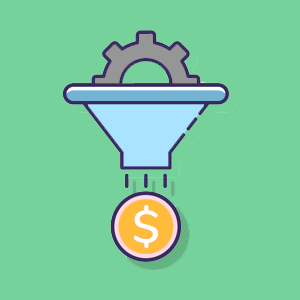 In the ever-evolving landscape of digital marketing, staying competitive and achieving optimal results requires adopting effective strategies. Full Funnel Marketing is one such strategy that has gained popularity in recent years. In this in-depth article, we’ll explore what Full Funnel Marketing is, how it’s used, why marketing teams should adopt it, the pros and cons, and the tools that can help streamline the process.
In the ever-evolving landscape of digital marketing, staying competitive and achieving optimal results requires adopting effective strategies. Full Funnel Marketing is one such strategy that has gained popularity in recent years. In this in-depth article, we’ll explore what Full Funnel Marketing is, how it’s used, why marketing teams should adopt it, the pros and cons, and the tools that can help streamline the process.
What is Full Funnel Marketing?
Full Funnel Marketing is a comprehensive approach to marketing that focuses on the entire customer journey, from the initial brand awareness to post-purchase retention and advocacy. It’s an extension of the traditional sales funnel, which typically consists of stages like awareness, consideration, and conversion. Full Funnel Marketing encompasses the entire customer lifecycle, recognizing that retaining existing customers and turning them into brand advocates is as important as acquiring new ones.
How is Full Funnel Marketing Used?
- Awareness Stage: At the top of the funnel, the goal is to create brand awareness. This involves content marketing, social media campaigns, influencer partnerships, and other strategies to introduce potential customers to your brand.
- Consideration Stage: In the middle of the funnel, the focus shifts to nurturing and educating prospects. Email marketing, webinars, and other content can be used to provide valuable information and guide them towards making a decision.
- Conversion Stage: The bottom of the funnel is where the actual sale takes place. Here, marketing efforts like retargeting ads, special promotions, and persuasive content help drive conversions.
- Post-Purchase Stage: After the conversion, Full Funnel Marketing continues with strategies to ensure customer satisfaction and loyalty. These include email follow-ups, customer support, loyalty programs, and gathering feedback.
Why Should Marketing Teams Adopt Full Funnel Marketing?
- Comprehensive Strategy: Full Funnel Marketing recognizes the importance of the entire customer lifecycle, ensuring that no potential opportunity is overlooked. This holistic approach can lead to better results.
- Improved Customer Retention: By focusing on post-purchase stages, Full Funnel Marketing helps in building long-term relationships with customers. Retaining existing customers is often more cost-effective than acquiring new ones.
- Better Data Insights: Analyzing the full funnel provides more comprehensive data about customer behavior and preferences, enabling more informed marketing decisions.
- Increased Efficiency: Full Funnel Marketing allows marketing teams to allocate resources more efficiently. By understanding where prospects are in the funnel, teams can tailor their efforts for maximum impact.
- Brand Advocacy: Satisfied customers who have had a positive experience with your brand can become powerful advocates. Full Funnel Marketing encourages and nurtures this process.
Pros and Cons of Full Funnel Marketing
Pros:
- Higher ROI: By targeting each stage of the funnel effectively, Full Funnel Marketing can lead to a higher return on investment.
- Better Customer Insights: Marketers gain a deeper understanding of customer behavior and preferences, enabling them to create more targeted campaigns.
- Long-Term Value: Focusing on post-purchase stages can lead to higher customer retention and lifetime value.
- Competitive Advantage: Embracing Full Funnel Marketing can set your business apart from competitors who may still be using traditional, linear funnel models.
Cons:
- Resource-Intensive: Implementing Full Funnel Marketing can be resource-intensive, requiring more time, personnel, and budget.
- Complexity: The full funnel approach can be complex to manage, especially for small businesses with limited resources.
- Measuring Success: It can be challenging to accurately measure the success of Full Funnel Marketing, as success often involves long-term results that may not be immediately apparent.
Tools to Help with Full Funnel Marketing
- Marketing Automation Platforms: Tools like HubSpot, Marketo, and Pardot help manage and automate marketing activities across the entire funnel.
- Customer Relationship Management (CRM) Software: CRM software such as Salesforce and Zoho CRM helps track customer interactions and manage relationships effectively.
- Analytics Tools: Google Analytics, Mixpanel, and Kissmetrics provide valuable insights into customer behavior and campaign performance.
- Email Marketing Software: Platforms like Mailchimp, Constant Contact, and SendinBlue are essential for nurturing leads and engaging with customers.
- Social Media Management Tools: Hootsuite, Buffer, and Sprout Social assist in creating and scheduling social media campaigns.
Conclusion
Full Funnel Marketing is a powerful approach that recognizes the importance of the entire customer journey, from initial awareness to post-purchase advocacy. While it has its challenges, the benefits of a comprehensive strategy, improved customer retention, and better data insights make it a compelling option for marketing teams looking to maximize their impact and achieve long-term success. With the right tools and a well-planned strategy, Full Funnel Marketing can set your business on the path to growth and sustainability in today’s competitive digital landscape.
